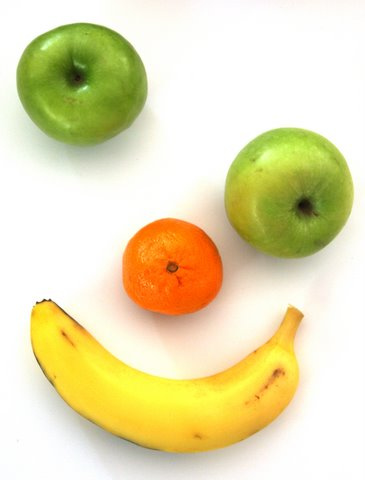
Why is adequate fruit and vegetable consumption so important?
Why is adequate fruit and vegetable consumption so important? You’ll have a hard time finding a reason not to consume fruits and vegetables each day. They are alkaline producing, which can help to preserve bone mass and muscle tissue. They are rich in antioxidants, vitamins, minerals, fibre, and phytonutrients. They contain lots of water to help you stay hydrated. Because fruits and vegetables have a high water and fibre content, they’re low in calories relative to their volume. Consuming them on a regular basis can result in a higher volume of food intake. Since humans consume a consistent volume of food, a high consumption of low calorie density foods can help to control overall food intake and manage body weight. See: What Are Your 4 Pounds Made Of? Antioxidants Plant foods, especially colourful ones, are a primary source of antioxidants. We need lots of these to curb free radicals formed in the body. Many plant antioxidants are stored in the leaves, where oxygen is active in photosynthesis. Others appear in plant pigments (for example, the anthocyanins that make the blue-purple colours of blackberries and blueberries) and the chemical defenses of plant skins (for example, quercetin in apple skins). Fat-soluble antioxidants are most likely to concentrate in the fatty plant material – such as within the germ. Studies suggest that consuming a diet rich in antioxidants and anti-inflammatory components (such as those found in fruits and vegetables) may lower age-related cognitive declines and the risk of developing neurodegenerative disease. Epidemiologic and clinical trial data demonstrate strongly that a diet rich in plants (including plenty of fruits & vegetables) can reduce the risk of cardiovascular diseases as well as other chronic diseases. For instance, by simply increasing vegetable and fruit intake, experts predict that we could prevent 20% or more of all cancer cases and avoid approximately 200,000 cancer-related deaths annually. What you should know Prehumans may have eaten meat, but our ancestors didn’t neglect plants. After all, a tuber is a lot easier to kill than a wild boar. Our ancestors ate vegetables and fruits in abundance, and we have evolved to reap the benefits of plants’ nutrients. Vegetables and fruits should make up the base of everyone’s nutritional pyramid. They are the foundation of a high-quality, healthy diet. Reduce your disease risk A higher level of fruit and vegetable consumption is associated with a lower incidence of: Cardiovascular disease Colon cancer High blood cholesterol High blood pressure Prostate cancer Type 2 diabetes Obesity Stroke Eye disease Asthma Cervical cancer Breast cancer Chronic obstructive pulmonary disease Endometrial cancer Gastric cancer Lung cancer Lymphoma Osteoporosis Ovarian cancer Pancreatic cancer Thyroid cancer It’s all good In particular, leafy greens offer some of the greatest benefits. But keep in mind that most produce is good produce. Variety is also imperative. Studies have shown a direct correlation between the variety of fruits and vegetables eaten and the benefits seen from the nutrients. More fruits & veg = better diet overall Most fruits and vegetables are low on the glycemic index and won’t significantly alter blood glucose and insulin levels. This can help with satiety and body composition. Diets with a foundation of fruits and vegetables tend to be lower in saturated fat and cholesterol, and have higher levels of dietary fibre, magnesium and potassium, vitamins C and E, folate, carotenoids, flavonoids and other phytochemicals. Consuming vegetables and fruits in the form of greens supplements likely provide similar nutrients and can be used when the whole, fresh option isn’t available. Is organic better? If you are concerned about the difference in health benefits and nutrients between conventional and organic fruits and vegetables, see the following article for more: All About Organic Foods Summary and recommendations Aim to consume some sort of vegetable and/or a fruit most every time you eat. For extra credit Do you ever feel like you eat the same two vegetables and fruits? Try some new ones. This should get you started: List of vegetables | List of fruits Stumped for cooking ideas? Try AllRecipes.com and search by ingredient. There’s no excuse! Another bonus of consuming high amounts of fruits and veggies is that producing plant foods requires a low input of fossil fuel and water. You can use vegetable juice if consuming the whole vegetable is a problem, but keep in mind that you do miss out on the some of the benefits. Vegetable and fruit juices typically extract the fibre, which is important. For those who justify a lack of vegetables in their diet by taking a multivitamin — sorry, but supplementing individual vitamin intake, as opposed to actually eating the fruits and vegetables, does not provide the same benefits.
